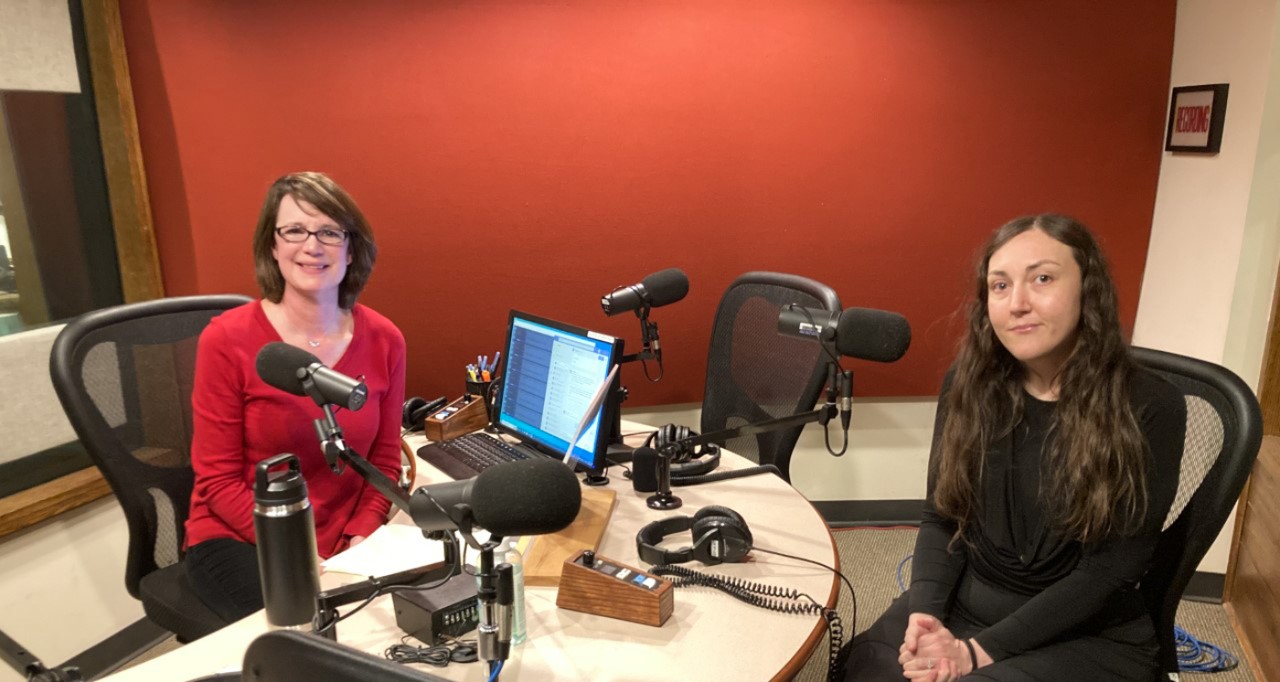
Wired: Therapy part of psychedelic therapy is a mess
UC researcher says tested therapy protocols are needed to protect patients
Wired turned to a University of Cincinnati postdoctoral researcher to understand shortcomings in new experimental therapies that use psychedelics.
UC College of Arts and Sciences research associate Neşe Devenot is co-author of a new opinion piece in the journal JAMA Psychiatry that argues that psychedelic-assisted therapies need tested protocols to prevent patient harm.
Some clinical studies have reported serious adverse events among patients in psychedelic trials that include abuse, self harm and dependency.
“A lot of the ideas that are taken for granted about the way psychedelic-assisted therapy works are not evidence-based. They’re not ideas that are rooted in any kind of traditional scientific evidence,” Devenot told Wired.
And the speed at which researchers are racing to get the therapy out to the masses means that the time to scrutinize this component is running out. “They’re building the airplane while they’re flying it,” she says.
Devenot, who works in UC's Institute for Research in Sensing, was a guest on WVXU's Cincinnati Edition to discuss the growing interest around psychedelics. She spoke to Cincinnati Edition host Lucy May about the risks and potential rewards of psychedelics to treat a wide variety of mental health issues.
Devenot was co-author of a study in the Kennedy Institute of Ethics Journal that found psychedelics might help people change unwanted behaviors by helping them reinvent their perceptions of themselves.
UC researchers re-examined a smoking-cessation study that asked participants to write about their experience with psilocybin in conjunction with clinical treatment to quit smoking. They found that psychedelics combined with talk therapy often helped longtime smokers see themselves as nonsmokers. This new core identity might help explain why 80% of participants were able to stop smoking for six months and 60% remained smoking-free after five years.
“It wasn't just psilocybin,” Devenot told Cincinnati Edition. “Clinical trial leaders and clinicians were suggesting that the participants were at their root a nonsmoker. They were encouraging that shift in perspective.”
Devenot's colleague Allen Davis, director of Ohio State University's Center for Psychedelic Drug Research and Education, also joined the show to discuss its potential and the legal and political environment that makes studying psychedelics a challenge.
Featured image at top: Lucy May, left, host of WVXU's Cincinnati Edition, talks to UC postdoctoral research associate Neşe Devenot about psychedelics. Photo/Michael Miller
More UC research in the news
- Neuroscience News: Psychedelics may help people reinvent themselves
- New York Post: Psychedelics could transform cigarette addiction treatment
- Medical Xpress: Psychedelics may help people reinvent themselves
Related Stories
Cincinnati researchers want to know if MRIs can work better
June 28, 2024
WVXU and the Cincinnati Business Courier highlighted a new collaboration between the University of Cincinnati College of Medicine, UC Health GE HealthCare, JobsOhio, REDI Cincinnati and Cincinnati Children’s to create an MRI Research and Development Center of Excellence located on UC’s medical campus.
UC opens Blood Cancer Healing Center
June 28, 2024
Media outlets including WLWT, Local 12, Spectrum News, the Cincinnati Enquirer and Cleveland.com highlighted the opening of the University of Cincinnati Cancer Center's Blood Cancer Healing Center.
Financial factors to consider when moving
June 27, 2024
Moving can be a stressful and expensive endeavor. When it comes time to move, there are important financial implications to consider, Gary Painter, PhD, the academic director of the University of Cincinnati’s Carl H. Lindner College of Business real estate program and a professor of real estate, told USA Today.
New project aims to better support teen mothers in Adams County
June 27, 2024
WCPO highlighted a partnership between the University of Cincinnati and the Adams County Health Department that is aiming to provide better support for teen mothers in the county.
Free Wi-Fi, work area coming to Greater Cincinnati
June 27, 2024
St. Lawrence Park in Price Hill now has free Wi-Fi and a furnished outdoor space for community members to access digital needs. The space is part of The Nodes Project, which stands for “Neighborhoods of Design Engagement": a collaboration between UC DAAP communication designers and community entities.
Study aimed at reducing opioid overdose deaths presents results
June 27, 2024
The University of Cincinnati's John Winhusen and Caroline Freiermuth discussed the evidence-based practices implemented during the HEALing Communities Study to fight the opioid epidemic with Spectrum News.
UC alum credits journalism program with early success
June 26, 2024
Zachary Jarrell came to the University of Cincinnati in 2019 to pursue a degree in statistics. In 2023, he graduated with a Bachelor’s in Journalism. For many undergraduates, the journey through college rarely takes the expected track. Detours happen, and majors change. When plans switch up, it can be helpful to a student’s success to find support. For Jarrell, it was the people he worked alongside in the journalism department who helped him on his journey. It has left a lasting impression on his life so far, guiding him to multiple internships as an undergraduate, real-world experience in prominent news outlets, and eventually a successful career in the highly competitive field of journalism.
The health impact of living near a natural gas leak
June 25, 2024
UC College of Arts and Sciences Professor Amy Townsend-Small talks to the BBC about the health issues faced by neighbors of leaking natural gas wells.
Male birth control gel inches towards FDA approval
June 25, 2024
The University of Cincinnati's Wesley Baas spoke with Yahoo News and the Cincinnati Enquirer about a new male birth control gel that could be close to receiving FDA approval.
Carnegie Foundation recognizes UC with Leadership for Public Purpose classification
June 24, 2024
UC part of inaugural group honored for focusing on developing students as leaders
